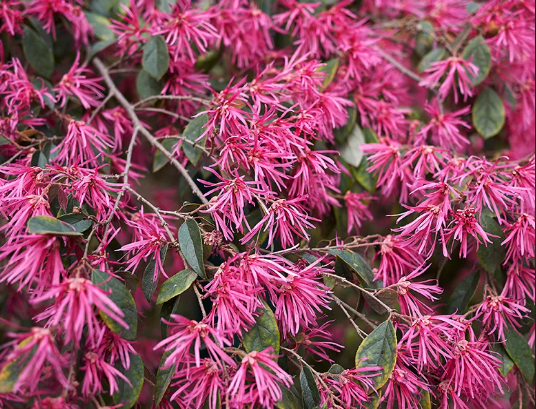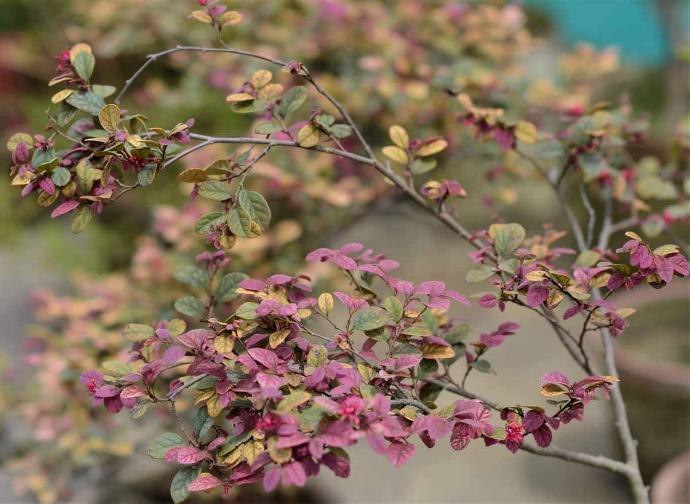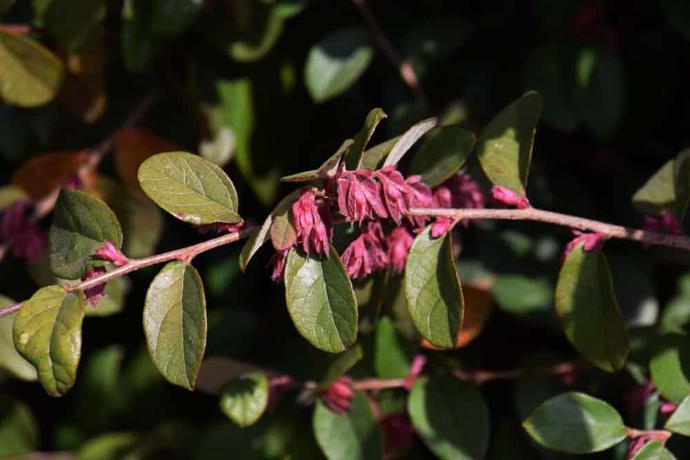Chinese Fringe Flower Plant
Chinese Fringe Flower (Loropetalum chinense) is a shrub that grows 6-10 ft tall, hardy in USDA Zones 7-10, prefers well-drained, acidic soil, full sun to part shade, medium moisture, not edible, and not medicinal.

Habit
Shrub
Height
1-3 m
Growth
Moderate
Soil
Well-drained, loamy soil
Shade
Full sun to part shade
Moisture
Medium
Edible
No
Medicinal
N o
Origin
China, Japan
Climatic Condition
Subtropical, Temperate
Temperature (°)
10-30°C
Humidity (%)
50-80%
Potting media
Peat, mulch
Fertilizers
Balanced NPK
Watering
Moderate watering
Plant Weight
2-5 kg
Flowering Time
Spring, Summer
Soil Ph level
6.0 - 7.5
Water Ph level
6.0 - 7.5
Soil EC
1-2 dS/m
Yield Per Plant
Ornamental
NPK ratio
10:10:10
life Span
Perennial (10+ years)
Health Benefits
Decorative, attracts pollinators
Suggested Grow Media or Potting Mix ?
50% peat moss, 30% perlite, 20% compost
Suggested Fertigation/Fertilizers
Fertilize every 4 weeks with a balanced, water-soluble fertilizer.
Yeild Per Plant
Partial shade
NPK ratio
Moderate
life Span
No
Health Benefits
Yes
Common Diseases and Remedies
Root Rot, Powdery Mildew, Leaf Spot, Rust, Aphids
Yellowing leaves, wilting, White, powdery growth on leaves, Dark spots on leaves, Orange or yellow spots on leaves, Distorted leaves, sticky residue
Improve soil drainage, avoid overwatering, Neem oil, sulfur, Remove and destroy infected leaves, Remove and destroy infected leaves, Neem oil, insecticidal soap
Fungicides with mefenoxam, Fungicides with myclobutanil, Fungicides with copper, Fungicides with mancozeb, Systemic insecticides (imidacloprid)
HEALTH BENEFITS
· Used in traditional medicine for anti-inflammatory benefits.
· May aid in wound healing and skin care.
· Contains antioxidants that support overall health.
· Limited scientific research, but used in folk medicine.

